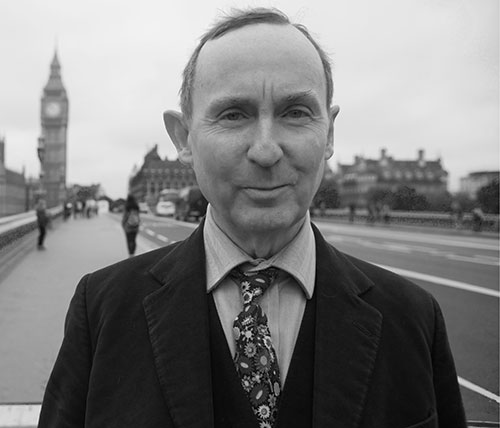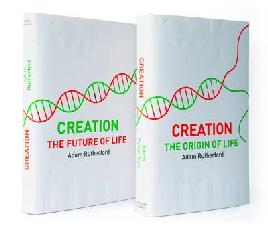
Katherine Mansfield was born as Kathleen Mansfield Beauchamp on the 14th of October 1888, into a prominent family in Wellington. Her father, Harold Beauchamp, became the chairman of the Bank of New Zealand (then, curiously enough, owned by New Zealanders). He had been born in Australia, but moved to New Zealand with his family when he was three years old. At the age of 65, he was made a knight of the realm. Katherine’s mother was Annie Beauchamp, whose brother would marry the daughter of Richard Seddon, former Prime Minister of New Zealand. This marriage wove the Beauchamp family into New Zealand’s prominent social circles.
When Katherine was five, her family moved from Thorndon to the then country suburb of Karori for health reasons. Katherine spent the happiest years of her childhood in Karori. Her short story Prelude published in 1918, was inspired by her memories of this happy time.

Mansfield’s first published her short stories in 1900 in a society magazine called New Zealand Graphic and Ladies Journal.
Mansfield expressed a feeling of alienation in her journals. She became disillusioned with New Zealand because of her observations of Māori being repressed by the Pakeha settlers. This is probably why Māori characters are often portrayed in a positive light in a story such as How Pearl Button Was Kidnapped, first published in 1912.
At age fifteen, Mansfield moved to London to attend school there. When she returned to New Zealand, aged nineteen, she began to write short stories prolifically. She was determined to become a professional writer and returned to London at the age of 21.
Financially, Mansfield was sustained by an annual allowance from her father of one hundred pounds. But Mansfield was a woman ahead of her time and led an unconventional lifestyle, being bisexual and becoming pregnant while unmarried. Her mother was horrified and raced over to London (well, as quickly as you could race in 1909) where she dispatched Katherine to Bad Wörishofen, a spa town in Bavaria. Mansfield miscarried soon after arriving in Bad Wörishofen and, to compound her woes, her mother cut Katherine out of her will.
 However, her stay in Germany was to enhance Mansfield’s writing career. Here she first encountered the works of Anton Chekhov, who is considered to be among the greatest writers of short fiction in history. Her experiences of Germany produced the stories which became her first published collection In a German Pension published in 1911.
However, her stay in Germany was to enhance Mansfield’s writing career. Here she first encountered the works of Anton Chekhov, who is considered to be among the greatest writers of short fiction in history. Her experiences of Germany produced the stories which became her first published collection In a German Pension published in 1911.
Mansfield was profoundly affected by the death of her younger brother, Leslie Beauchamp, who was killed fighting in France in 1915. “Chummie”, as the family called him, had been very close to Katherine in their childhood. Perhaps mindful of this shadow of mortality, Mansfield wrote prolifically from 1916 onwards.
This was to prove prescient as Mansfield was diagnosed with tuberculosis in December 1917. In order to lessen the effects of her disease, Mansfield went abroad to Europe, staying in France and then Italy. During this time she published two more collections, Bliss and Other Stories (1920) then The Garden Party and Other Stories (1922).
Katherine Mansfield spent the latter part of her life seeking unorthodox treatments for her tuberculosis, but, unfortunately, she died on the 9th of January, 1923 from a pulmonary haemorrhage. Mansfield left a lot of unpublished stories behind, but her former husband, the editor, John Middleton Murry, took it upon himself to gather and publish several posthumous collections of her work.
Mansfield’s legacy is writ large in the New Zealand literary landscape. Our most prestigious literary residency is the Katherine Mansfield Menton Fellowship which all the big knobs of Kiwi literature have enjoyed since it was inaugurated in 1970. Many a grand poobah of Kiwi writing has resided for six months in Menton, France, at the Villa Isola Bella, enjoying the freedom of writing without the financial pressure of the everyday world. Katherine Mansfield lived and wrote at the Villa Isola Bella in the latter years of her life.
I hate to end on a slightly sour note, but I wonder in New Zealand where we have had several highly talented short story writers like Mansfield, Frank Sargeson and Owen Marshall, why the short story writer seems to be regarded somehow as a lesser being and not taken seriously until they publish a novel. We have let the novel become the Olympus to which all writers should aspire. Some writers like Mansfield clearly felt their talent lies in writing the shorter form fiction. Living, as she did, far away from the claustrophobic literary milieu of New Zealand, clearly Mansfield never felt any pressure to write a novel but she produced a myriad of smaller literary treasures.
More on KM
- Find works by Katherine Mansfield in the library collection
- Read information about Katherine Mansfield in the library collection
- Gillian Boddy. Mansfield, Katherine, from the Dictionary of New Zealand Biography. Te Ara – the Encyclopedia of New Zealand, updated 30-Oct-2012
- Katherine Mansfield Birthplace
- A set of images and portraits on DigitalNZ
- Our blog posts about KM:
NZOnScreen has material on Katherine Mansfield, including the 1986 documentary A portrait of Katherine Mansfield.















![IMG_2002[1]](https://cclblog.files.wordpress.com/2016/08/img_20021.jpg?w=636)






